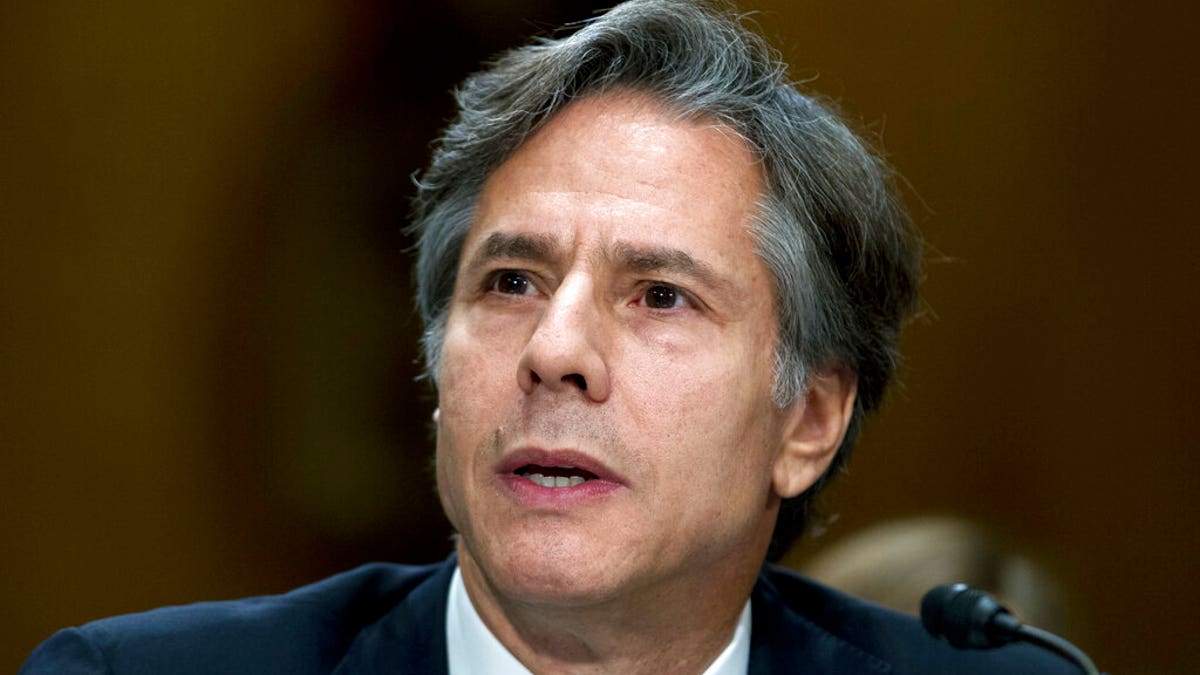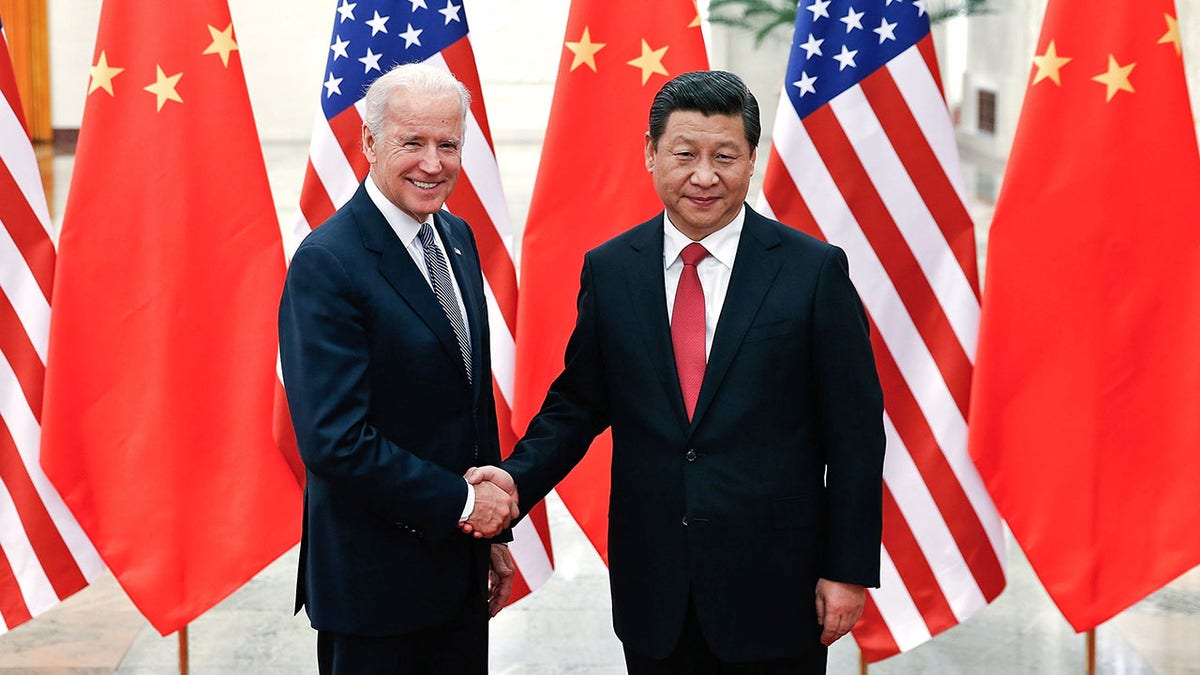Eric Shawn: New warnings about China
Gen. Jack Keane says 'we are out-gunned in the Pacific' and says the US military needs to be better prepared to confront Beijing
Two U.S aircraft carrier strike groups conducted joint exercises in the disputed waters of the South China Sea on Tuesday, amid increasing attention on how the Biden administration will handle threats from China.
The Theodore Roosevelt Carrier Strike Group and the Nimitz Carrer Strike Group conducted the joint operation, marking the first time two carriers have operated in the South China sea since last July.
The South China Sea is a highly trafficked waterway that is being increasingly militarized by China, as it aims to secure the valuable shipping routes and resources in the disputed area. The Trump administration had stepped up U.S. pressure on China in the region, especially on China's highly disputed claim of control of much of the sea via its "nine-dash line."
"Through operations like this, we ensure that we are tactically proficient to meet the challenge of maintaining peace and we are able to continue to show our partners and allies in the region that we are committed to promoting a free and open Indo-Pacific," Rear Adm. Doug Verissimom, the commander of Theodore Roosevelt Carrier Strike Group, said in a statement.
INCOMING BIDEN SECRETARY OF STATE: TRUMP RIGHT TO TAKE 'TOUGHER STANCE' ON CHINA
"We are committed to ensuring the lawful use of the sea that all nations enjoy under international law," Rear Adm. Jim Kirk of the Nimitz group added.
Former Secretary of State Mike Pompeo stepped up the United States' rhetoric against China's South China Sea claims in July, around the last time two U.S. carriers operated together in the area.
"Beijing uses intimidation to undermine the sovereign rights of Southeast Asian coastal states in the South China Sea, bully them out of offshore resources, assert unilateral dominion, and replace international law with 'might makes right.' Beijing's approach has been clear for years," he said at the time. "The People's Republic of China (PRC) has no legal grounds to unilaterally impose its will on the region."
The new Biden administration's top officials now appear in some ways to be continuing a tough stance against China as questions persist about whether President Biden will maintain a firm foreign policy against the great power rival.

In this Thursday, Sept. 29, 2016, file photo, former Deputy Secretary of State Antony Blinken testifies on Capitol Hill in Washington, before the Senate Foreign Relations Committee hearing on Syria. Blinken now the secretary of state for President Biden. (AP Photo/Jose Luis Magana, File)
"President Trump was right in taking a tougher approach to China," Secretary of State Antony Blinken said in his confirmation hearing. Blinken also said China's state-sponsored persecution of the Uighur Muslims in the Xinjiang province is genocide, which is consistent with a declaration Pompeo made shortly before leaving office.
"That would be my judgment as well," Blinken said at his confirmation hearing when asked about Pompeo's genocide statement.
CREDIBLE CASE' CHINA IS CARRYING OUT GENOCIDE AGAINST UIGHURS: LEGAL OPINION
Rep. Michael McCaul, R-Texas, recently told Fox News that he largely is satisfied that Blinken and national security adviser Jake Sullivan take the threat from China seriously.
"When I spoke to Secretary of State Blinken and national security adviser Jake Sullivan, they both told me that they believe China poses the greatest long-term national security threat to the United States," McCaul said. "So it was good to get their assurances on that."
McCaul, the top Republican on the House Foreign Affairs Committee, did however express concerns about the Biden administration's approach to Huawei, a Chinese government-connected telecommunications company.
CLICK HERE TO GET THE FOX NEWS APP
And many have raised concerns about comments Biden himself made to CBS during his Super Bowl interview, in which he praised Chinese President Xi Jinping, who oversees what Blinken said is genocide and is behind the many Chinese threats to U.S. national security.
"I probably spent more time with Xi Jinping, I'm told, than any world leader has because I had 24, 25 hours of private meetings with him when I was vice president, traveled seventeen thousand miles with him. I know him pretty well," Biden told Nora O'Donnell.

Chinese President Xi Jinping (R) shake hands with then-U.S Vice President Joe Biden (L) inside the Great Hall of the People on December 4, 2013 in Beijing, China. (Photo by Lintao Zhang/Getty Images)
Biden added: "[H]e's very bright. He's very tough. He doesn't have -- and I don't mean this is a criticism, just the reality, he doesn't have a democratic, small D, bone in his body. But he is -- the question is I've said to him all along that we need not have a conflict. But there's going to be extreme competition. And I'm not going to do it the way that he knows and that's because he's sending signals as well. And I'm not going to do it the way Trump did. We're going to focus on international rules of the road."
Fox News' Hollie McKay and Brooke Singman contributed to this report.






